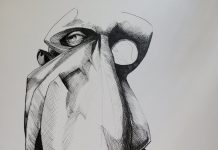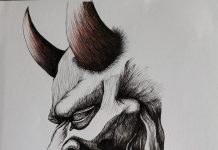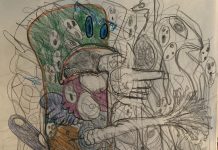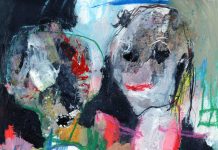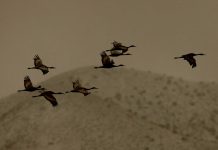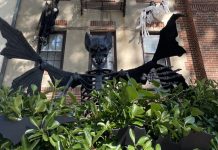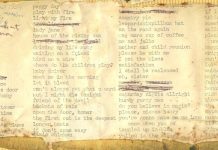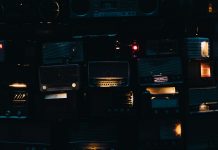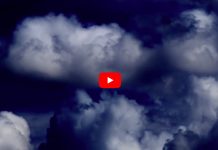I’m standing in a barren garden with Tolstoy, with Chekhov,
and they are frozen in place, like stricken roses of January,
like whipped horses, scarred into silence,
as songbirds with smothered throats.
Until at some signal, a ruckus begins.
Exhausted people walk out of the shadows,
trampling shards of glass,
holding grenades tenderly
as candles.
The poets look at each other, “Do you hear that?”
“Yes,” their hands reach for each other.
“It’s a chorus of bells.”
“And why do they celebrate? Asphalt still smolders.”
“Yes, but a 40-mile train through Ukraine
has halted, broken apart like ships,
an army of soldiers is walking home,
accepting flowers from crowds in Kyiv,
courteously ignoring the barbed-wire stems.”
The war will go on,
Chekhov and Tolstoy nod to each other.
But this will be the tyrant’s final spring.
The words rush away from them into the garden,
I too walk away, wash my hands, read another poem,
concentrate on an enormous sun rising through clouds.




